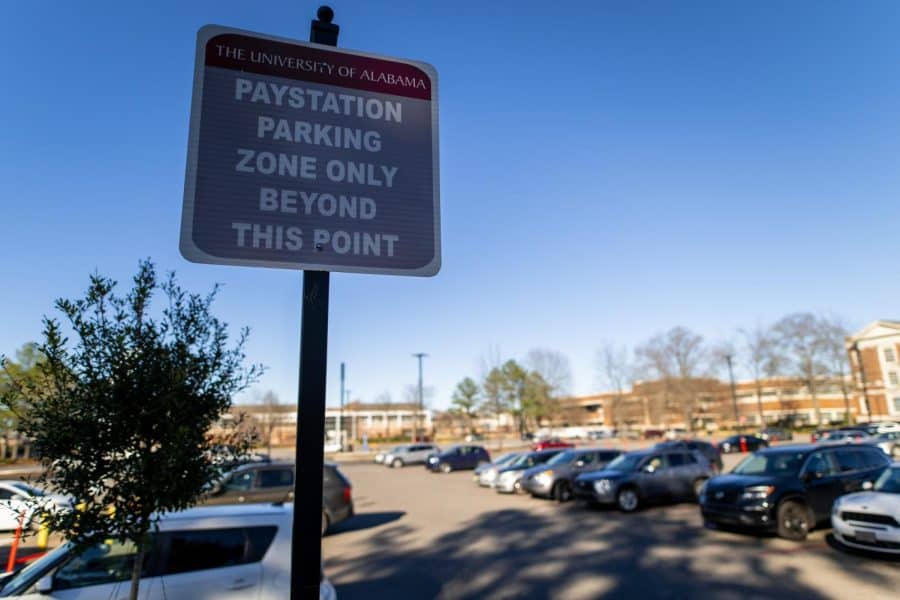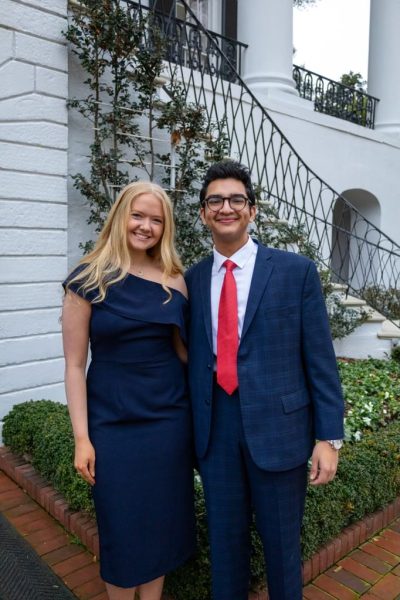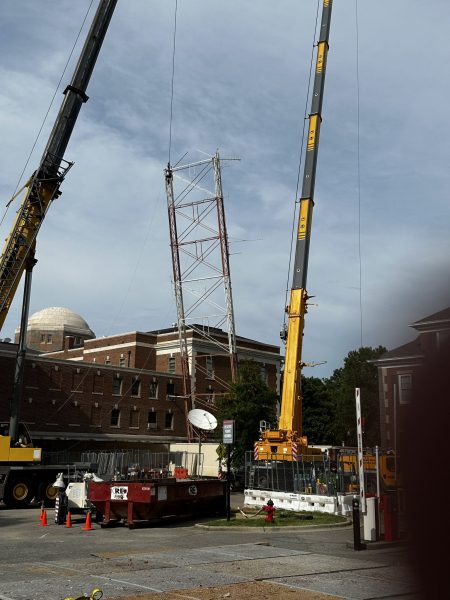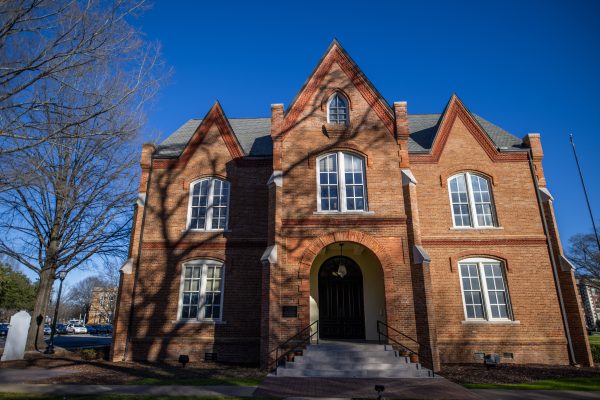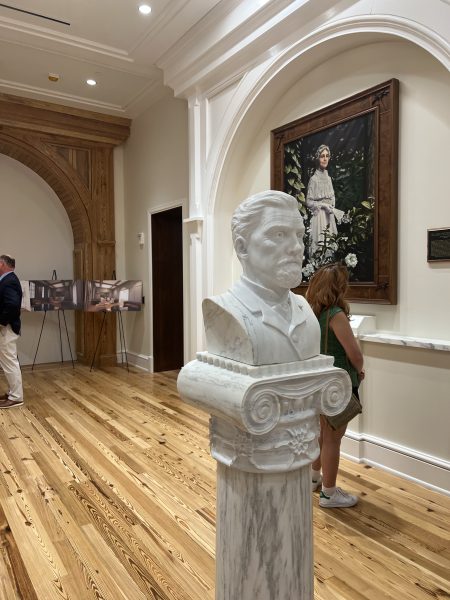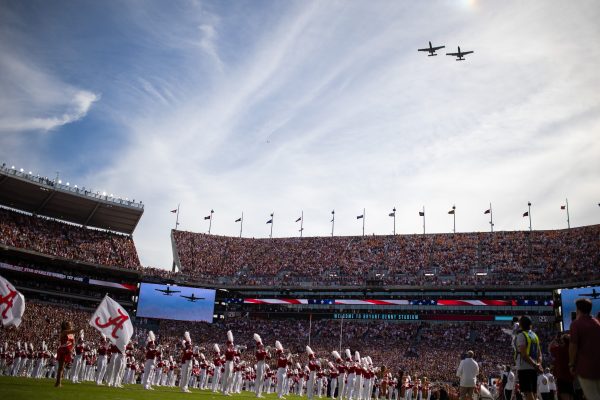With over 25,000 spaces, students continue to struggle with campus parking
February 16, 2023
The Crimson White conducted a poll via Instagram asking both residential and commuter students at The University of Alabama about their experiences parking on campus. The results showed that despite the University’s 25,000+ parking spaces, finding parking spaces continues to pose a challenge to many students.
During Fall 2022, 32,309 students were enrolled and taking classes in person at the University. Additionally, 7,169 faculty and staff were on campus. Events such as graduation, Bama Bound, Bid Day, Parent’s Weekend, student tours etc., bring a constant influx of individuals to campus throughout the year.
Residential students

Laura Klein, a freshman majoring in psychology, has encountered problems finding a parking space in a yellow residential lot. Klein said she spent 45 minutes trying to find a parking spot in the yellow residential zone one night.
“When I tell you I looked like every single place like I looked right when you pull up on a hill. I looked right to the left and the right of those spots. I checked in the parking deck all the way up to the fourth floor and not a single spot. I checked back behind where I parked by the apartments, not a single spot,” Klein said.
“I didn’t even feel comfortable walking from the Ferg at that time of night because it’s not like anyone at UA is willing to escort you, because I’ve asked before and they said no,” Klein said.
Since the spring semester started, Klein said she feels the parking situation has gotten worse.
“I honestly try not to move my car that much because of how bad parking there is,” Klein said. “I have a pass, there’s no reason why there should be not a single spot open anywhere. I think that either people are parking there that aren’t supposed to and they’re not enforcing it, or they’re simply giving out too many passes, because I’m paying $400 and I don’t even have a place to put my car.”
Transportation services announced in July residential surface lots would be zone enforced 24/7 beginning in fall 2022. The enforcement impacts individuals who do not have the residential parking permit corresponding to the lot they are parked in. Only residential students can buy a permit, and only for the residential zone their dorm is in.
Commuter students
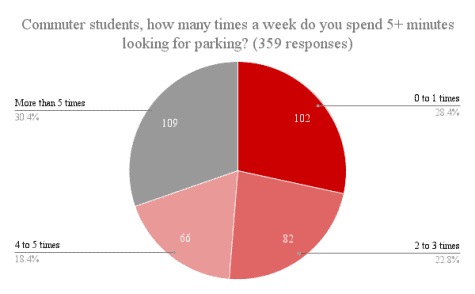
Alexis Nagy, a sophomore majoring in criminal justice and public relations, said she “tries to go to the parking deck like 30 minutes before [her] class starts so that [she] can find the spot.”
Nagy has a parking permit for the Stadium Drive parking deck. To Nagy, it is inconvenient to only be able to park in the Stadium Drive parking deck when she has classes across campus. A Stadium Drive Permit costs $260 more than a regular commuter pass.
Though Nagy said that if she looks hard enough she can find a spot or two, she does think the University oversells the lots.
“I think that they did oversell it because not everyone has class at the same time,” Nagy said. “I just wish that there was like, even if it was just a parking lot of like 20 spots, so I have the opportunity to park over there if I needed to.”
Nagy said the only reason she purchased a Stadium Drive parking deck was because the cheaper West parking lot was sold out. Nagy said Stadium Drive is an inconvenient place to park for her because the deck is next to Hewson Hall and she has classes at Russell Hall, which is a 20-minute walk for her.
Danielle Holt, a sophomore majoring in marketing, has a commuter pass for the Northeast parking lot. Holt gets to campus an hour early to get to class.
“It’s easy to find a spot, but it’s also a horrible location,” she said.
Holt said that it is difficult every day because the buses do not arrive early enough to get her anywhere close to where her classes are.
“I think it [parking passes] should probably be more aligned with your major in the area you need to be in for your classes,” Holt said.
Between classes, Holt stays on campus and finds things to do because of how far she is from the Northeast parking lot.
“I definitely never leave in between classes. I always have to stay and find something to do on campus because it is just way too far,” Holt said.
Alternatives fall short
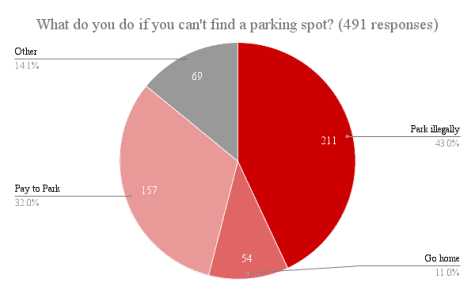
Nicolas Segura, a senior majoring in finance, said he has problems finding available pay-to-park spaces, which almost one-third of respondents said was their alternative to parking in their zone. Segura said living off-campus has shown him the severity of the parking problems on campus.
Segura moved off-campus sophomore year and utilized the buses and walking to get to campus. Now at a different apartment complex that is not walkable, Segura said he has become more aware of the parking issues on campus.
Segura opts to take the bus instead of paying for a parking pass. If he misses the bus, he’s at a loss and there is nowhere for him to park on campus. The closest he could get would be parking by his old apartment. Segura said that he can’t count on there being parking on campus.
If Segura has a class that gets out 15 or 45 minutes after the hour, he does not have the option to go to his car.
“I have to wait usually half an hour for the bus,” Segura said. He said the wait for the bus “takes a good chunk out of [his] day.”
The unreliability of pay-to-park has presented other issues for Segura, including affecting his work schedule. Segura said he thinks the parking passes are too expensive to be able to park on campus, especially considering the long distance many commuter lots are from most academic buildings.
“If you’re not one of the first ones to grab one [a pay-to-park spot] and then your options end up being well, you know, I could get a pass but at that point, it’d be a 20- to 30- minute walk from where my class actually is,” Segura said, adding that once those spots are taken, they’re taken for long periods of time.
In a statement prior to the survey being conducted, Shane Dorrill, assistant director of communications for the University, said the University has more than 25,000 parking spaces on campus. This is “including ten parking decks to meet the needs of students, faculty, staff and visitors.”
“The University is landlocked and unable to physically grow in certain areas, therefore, not every building can have parking next to it,” Dorrill said, “Parking is available, however, not necessarily always where it’s wanted.”
The Crimson White reached out to strategic communications on Feb. 13 for a comment on the Instagram poll and did not receive a response.

